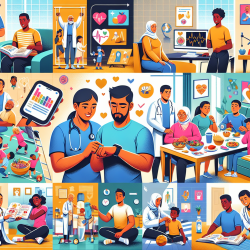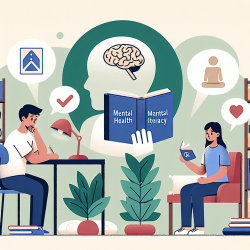Introduction
In the realm of health literacy, understanding the role of social and family support is crucial for practitioners aiming to improve healthcare outcomes, especially in children. The research article "Integrating Social and Family Support as a Measure of Health Outcomes: Validity Implications from the Integrated Model of Health Literacy" offers valuable insights into how these supports can be leveraged to enhance health literacy and, consequently, health outcomes.
Understanding the Integrated Model of Health Literacy (IMHL)
The Integrated Model of Health Literacy (IMHL) provides a comprehensive framework that includes knowledge, motivation, and competencies in accessing, understanding, evaluating, and applying health information. This model is particularly significant in low-income settings and non-English-speaking communities, where traditional health literacy interventions may fall short.
Key Findings from the Research
The study conducted a cross-sectional survey among university students in Pakistan, revealing that social and family support significantly influence healthcare, disease prevention, and health promotion. This influence is more pronounced than that of family affluence, which challenges the assumption that economic status is the primary determinant of health literacy.
Implications for Practitioners
For practitioners, especially those involved in speech-language pathology and related fields, these findings underscore the importance of integrating social and family support into health literacy interventions. Here are some practical steps:
- Enhance Communication: Encourage open communication between children, their families, and healthcare providers to ensure that health information is accessible and understandable.
- Leverage Social Networks: Utilize existing social networks to disseminate health information and support health literacy initiatives.
- Family Involvement: Actively involve family members in health education sessions to reinforce learning and application of health information.
- Community Programs: Develop community-based programs that foster social support and collective health literacy, especially in underserved areas.
Encouraging Further Research
While the study provides a robust framework, further research is needed to explore the nuances of how social and family support can be optimized in different cultural contexts. Practitioners are encouraged to collaborate with researchers to develop tailored interventions that address specific community needs.
Conclusion
Integrating social and family support into health literacy interventions can significantly improve healthcare outcomes. By focusing on these elements, practitioners can create more effective and inclusive health literacy programs that cater to diverse populations.
To read the original research paper, please follow this link: Integrating Social and Family Support as a Measure of Health Outcomes: Validity Implications from the Integrated Model of Health Literacy.










